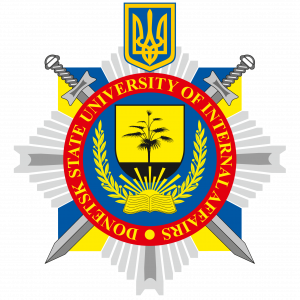The University scientists compiled and published two dictionaries: a bilingual terminological dictionary of the academic discipline “Theory of the State and Law” (authors: Tetiana Datsiuk, Maryna Kravtsova, Iryna Lopatynska) and a reference dictionary “Ethical requirements of legal profession” (authors: Ksenia Nikolenko, Iryna Lopatynska, Oleksii Hihin).
A bilingual terminological dictionary is offered to higher education seekers for their use in the process of studying with the aim of forming a wider scope of knowledge regarding general regularities of emergence, development and functioning of state-legal phenomena and processes, as well as the formation of thorough knowledge of the main and basic concepts for legal science.
The bilingual terminological dictionary is intended for higher education seekers of the first educational (bachelor’s) level, as well as for law enforcement officers, lecturers, adjuncts (postgraduate students).
It not only provides an opportunity for higher education seekers to record key concepts and terms of the academic discipline “Theory of the State and Law”, but also to strengthen their theoretical knowledge due to the possibility of mastering legal terminology in two languages.
The reference dictionary “Ethical requirements of legal profession” considers general features of ethics as a social phenomenon, outlines in a conceptual form the main features of the modern lawyer morality and provides specific summaries of the ethical codes of judges, notaries, lawyers, prosecutors, investigators, and public and private executives. Terms and concepts form a general idea of the essence and role of ethical views and requirements in the professional activity of a lawyer.
The reference dictionary is intended for higher education seekers of the second educational (master’s) level, as well as for law enforcement officers, lecturers, adjuncts (post graduate students).
Ethical requirements concern representatives of different professions and are determined mainly by an active civic position, a caring attitude of citizens to solving problems that have social resonance and state-national significance. The formulation of new terms and concepts is not only of scientific and theoretical importance, but it will also help to practically assimilate innovations, promote fluency in modern terminology, avoid mistakes, inaccuracies or discomfort in communication.










